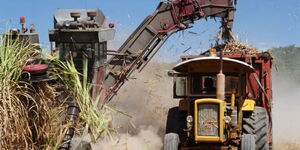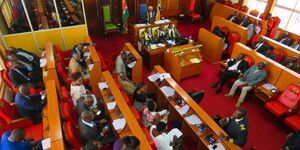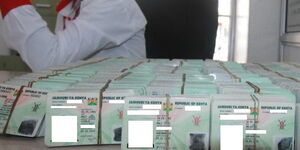The Kenya Association of Manufacturers (KAM) has called on US President Donald Trump to consider reviewing the 10 per cent tariff he placed on Kenyan exports.
Responding to Trump's recent move, where he signed a new executive order imposing reciprocal tariffs on trade with Kenya, KAM's Chief Executive, Tobias Alando, argued that the tariff will affect Kenya's export price competitiveness in the US.
Previously, Kenya's exports were protected from the tariff by the African Growth and Opportunity Act (AGOA), which is slated to expire in September 2025.
"Kenya's exports to the US, previously duty-free under AGOA, will now be subjected to additional costs, reducing their market competitiveness and therefore impacting Kenya's total exports of 737.3 million dollars(Ksh95.11 billion) realized in 2024," KAM said in a statement dated April 4.
Further, KAM is calling for an extension of AGOA beyond September, arguing that the act has had a significant economic and social impact on Kenya, creating over 58,000 jobs directly and over 100,000 jobs indirectly.
While acknowledging that the tariff is necessary and a commonly used trade policy tool, KAM stated it would affect existing contracts based on AGOA's preferential treatment, forcing Kenyan manufacturers to absorb the extra cost.
They further argue that Kenya's trade deficit with the US may widen due to expected export reductions and loss of US market share.
The manufacturers want the US to provide a transitional clause for current cargo en route to the US, which was shipped based on the 0 per cent AGOA preference.
The manufacturers argue that the new tariff, apart from affecting Kenya's economy, will also impact the livelihoods and jobs of those who benefited from the 0 per cent AGOA preference.
KAM has, however, assured those directly and indirectly affected by the tariff that it has begun engagements with the Kenyan government and key stakeholders to safeguard Kenya's trade interests and competitiveness in the US market.
The tariff will affect Kenyan exports, particularly in key sectors such as textiles, tea, and coffee, which have been exempt from tariffs under the African Growth and Opportunity Act (AGOA).
Vaccines, blood, antisera, toxins, and cultures—part of the pharmaceutical products that Kenya exports to the US—are also set to be affected.












